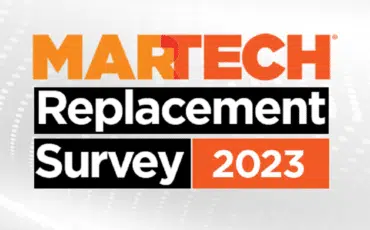Marketing budgets remain flat in 2023 having failed to climb back to pre-COVID levels. That’s one takeaway from Gartner’s latest CMO Spend and Strategy survey unveiled at the Gartner Marketing Symposium and Xpo in Denver. Another key finding was that 71% of CMOs believe they lack the budget successfully to execute this year’s strategies.
Gartner cites recessionary fears, inflation and a talent gap as stoking concerns in the enterprise that have knock-on effects on marketing and marketing technology investments. Perhaps unexpectedly, although media allocation is flat, spending on digital channels actually showed a slight decline.
The state of martech spend. The bad news for the martech space is that no less than 75% of CMOs feel under pressure from other parts of the enterprise to cut their technology spending. The consolation is that 63% plan to resist the pressure, to some degree at least, and grow their martech spending. But almost one quarter, 23%, do expect to make cuts.
CMOs do propose to increase social advertising spend, but among the categories likely to take a hit are search advertising, SEO and digital OOH.
It’s necessary to “make a clear value case for martech investment,” said Ewan McIntyre, chief of research for the Gartner for Marketers Practice, presenting the survey’s findings. He also said, using the analogy of a voyage, that what was needed was “not a bigger boat, but a more efficient boat.”
Dig deeper: Digital ad spend growth drops to 7.8% this year
Catalytic marketing. His comments reflected the prominent theme of the Gartner keynote delivered by Lizzy Foo Kune, VP analyst and Carlos Guerrero, VP advisory in the Gartner Marketing Practice. They insisted that, despite pressures to realize growth in an uncertain environment, CMOs should not take the familiar route of increasing activity and taking on more projects.

They also questioned the value of “customer obsession.” “Customer obsession goes too far,” said Guerrero, “to unprofitable extremes that customers find intrusive.” Rather than trying to meet customers in every conceivable channel, leveraging customer data to deliver countless relevant messages, the keynote speakers introduced the concept of “catalytic marketing.” Gartner data shows, they said, that more important than quantity of engagement are experiences that bring about some change in the customer.

In essence, catalytic marketing is not about “more.” “Progressive CMOs are breaking free from the cycle of more by embracing catalytic marketing and, in the process, shifting from growing marketing’s scope to growing marketing’s success,” said Guerrero.
Why we care. The pressures on marketing and martech investment are clearly real. It’s an environment that demands efficiency and demonstrable ROI. The catalytic marketing concept needs to be fleshed out (an example they cited was L’Oreal’s Skin Genius experience); that’s the positive part of the Gartner message.
The part that might be perceived as negative is the sense that attempting to develop a 360 degree view of the customer and apply it to engagement on countless channels, might be counter-productive, despite everything we’ve heard over the past few years.
About the survey. 410 CMOs and marketing leaders were surveyed in March and April 2023. Respondents were based in North America and Europe, representing various industries and company sizes, with most reporting annual revenue exceeding $1 billion.
Get MarTech! Daily. Free. In your inbox.


